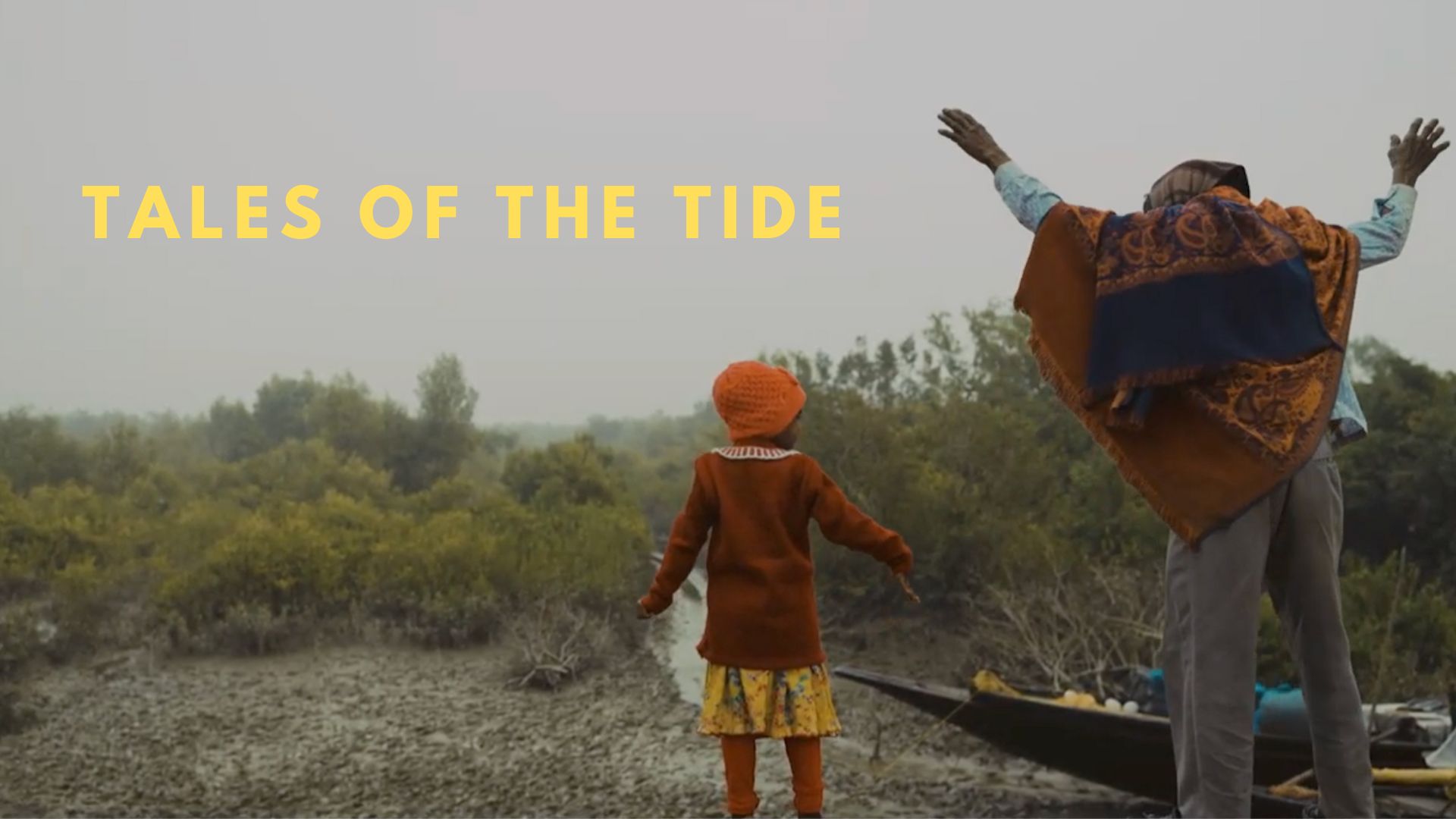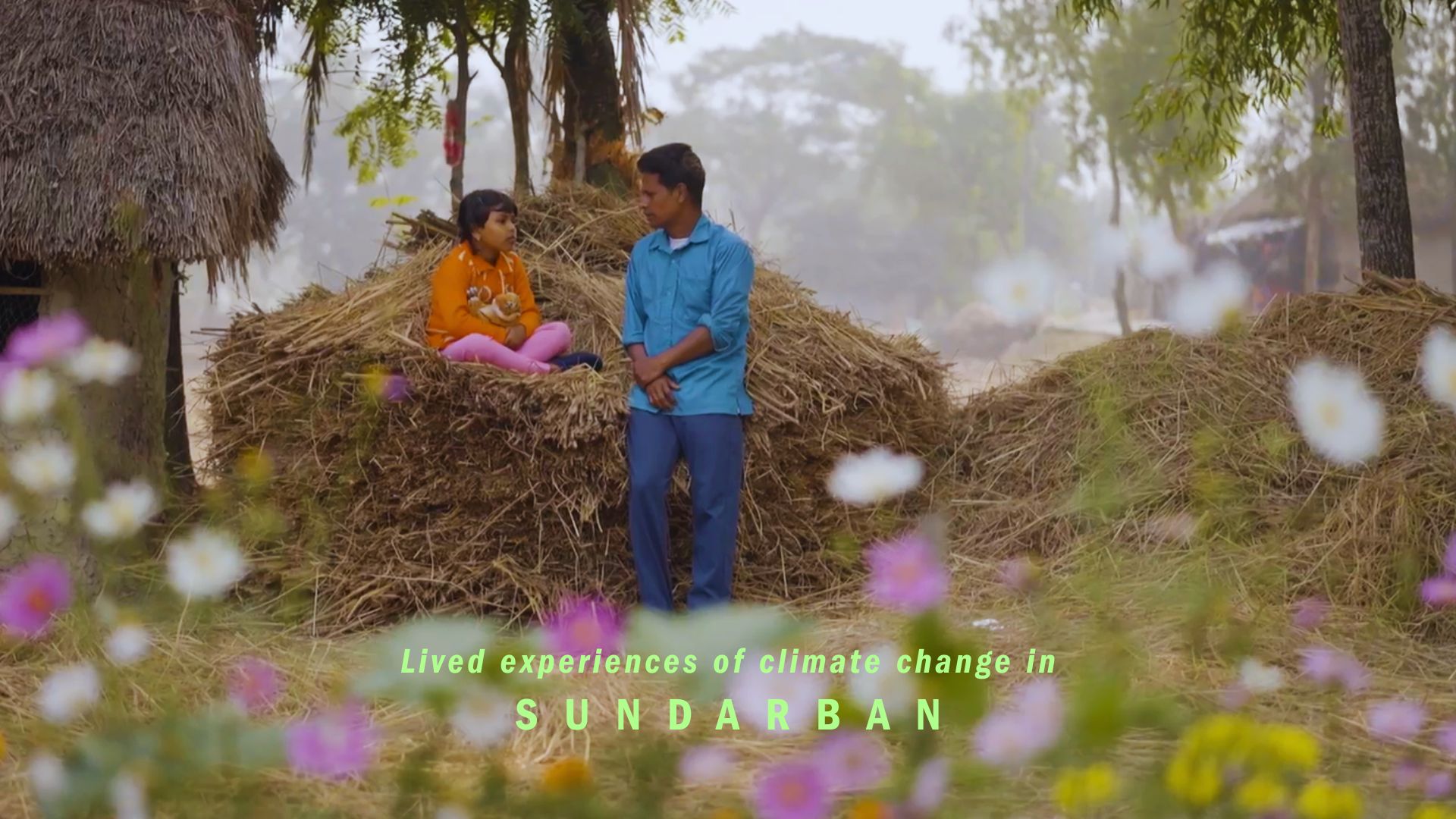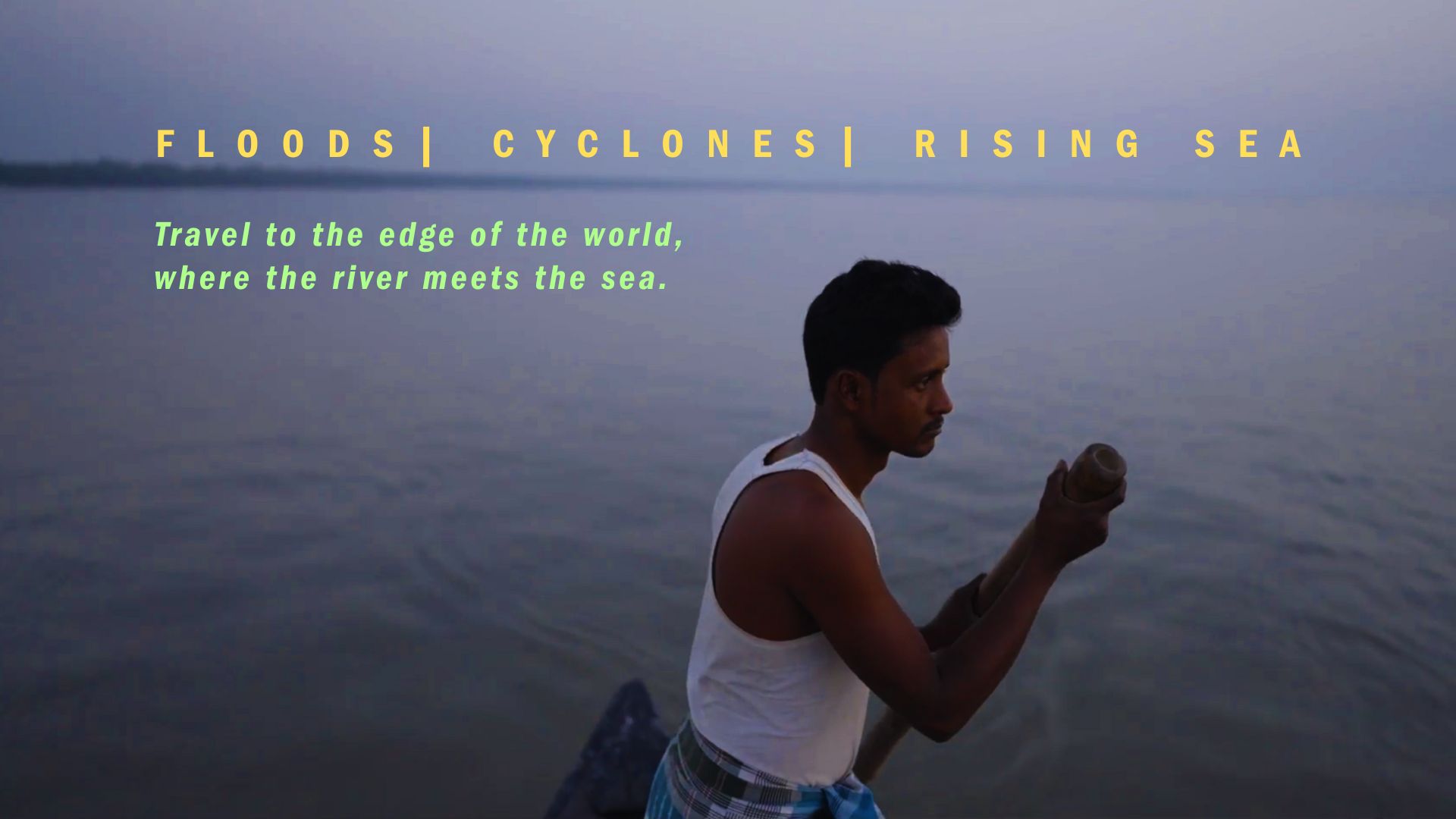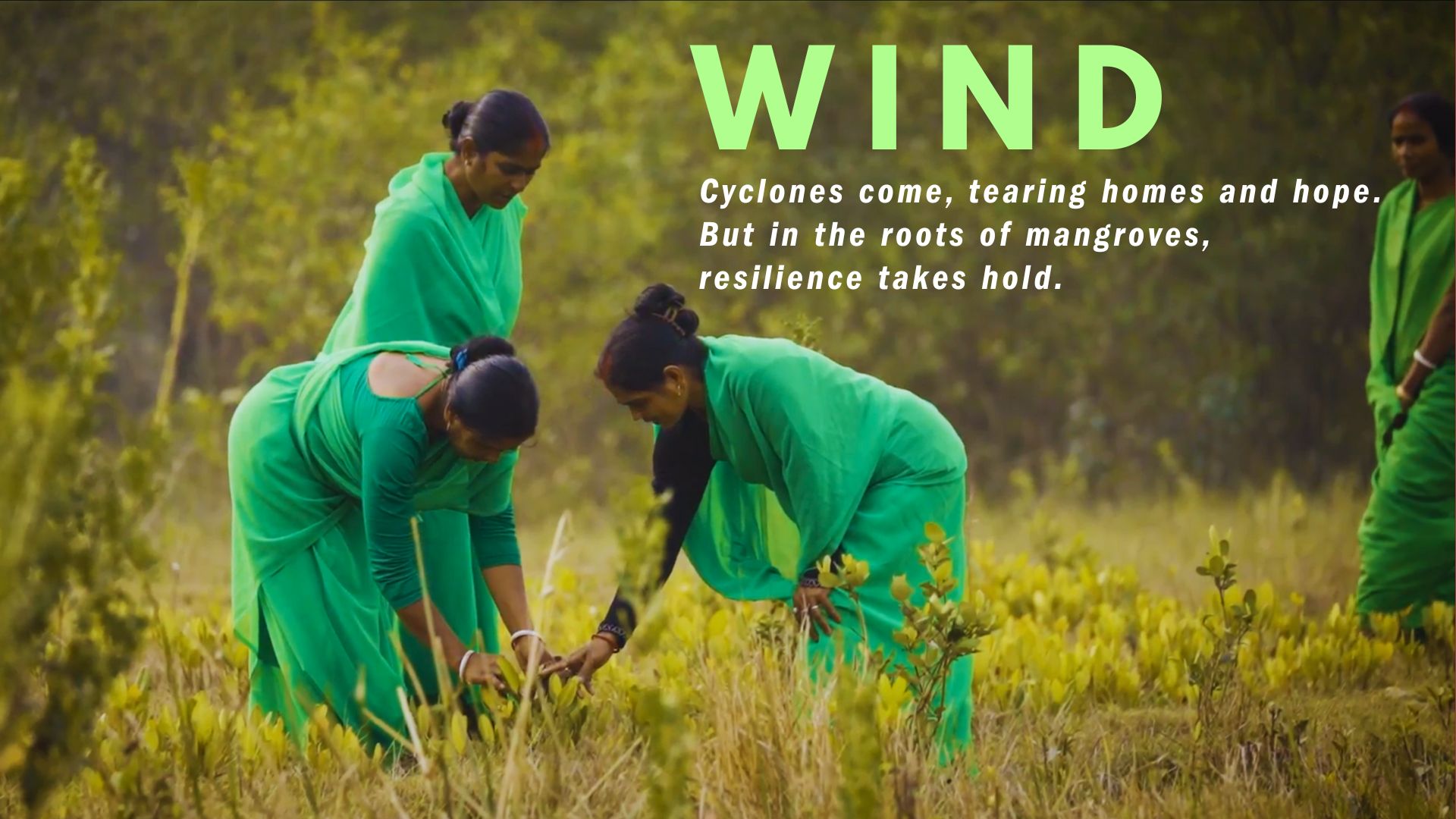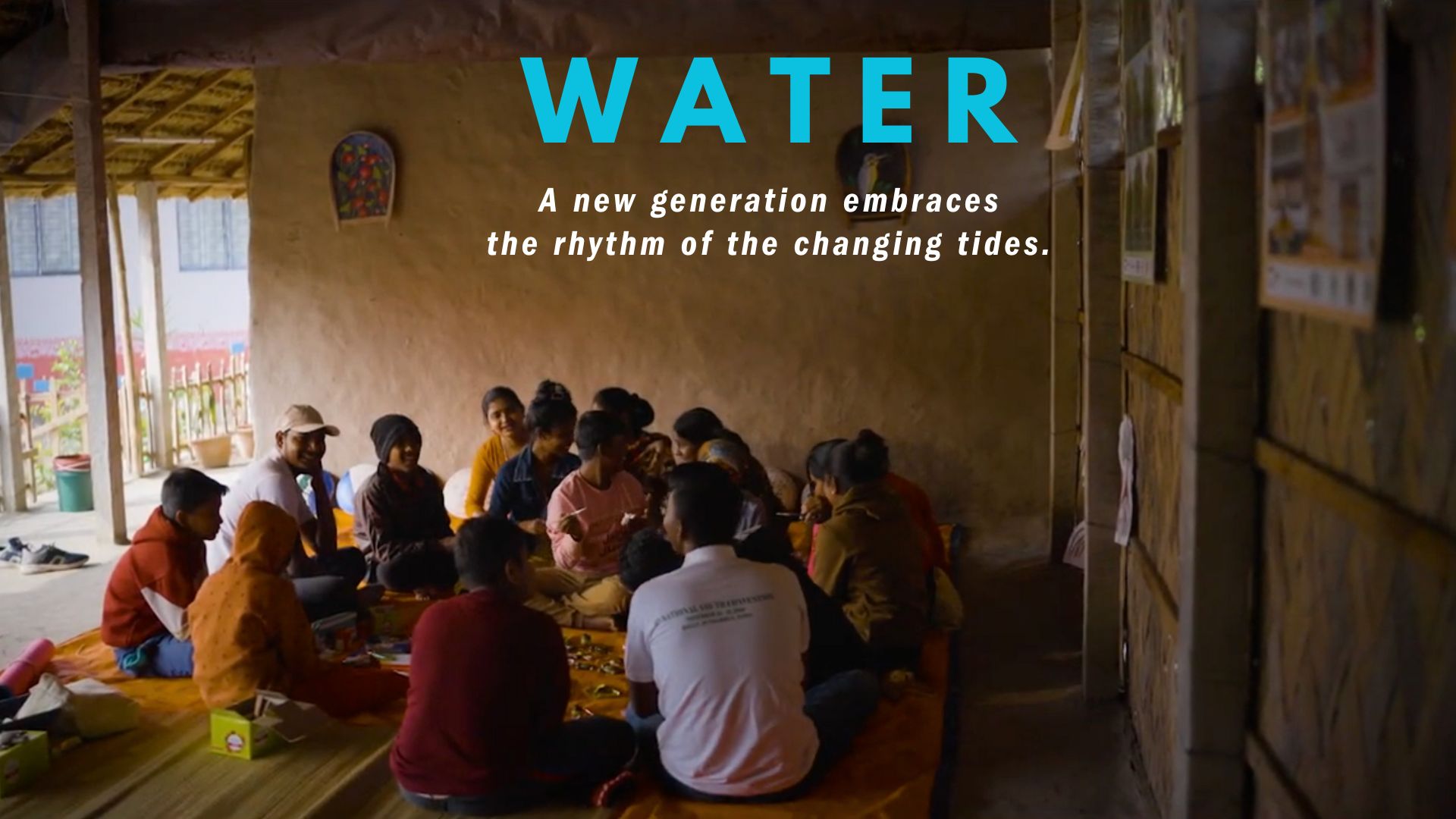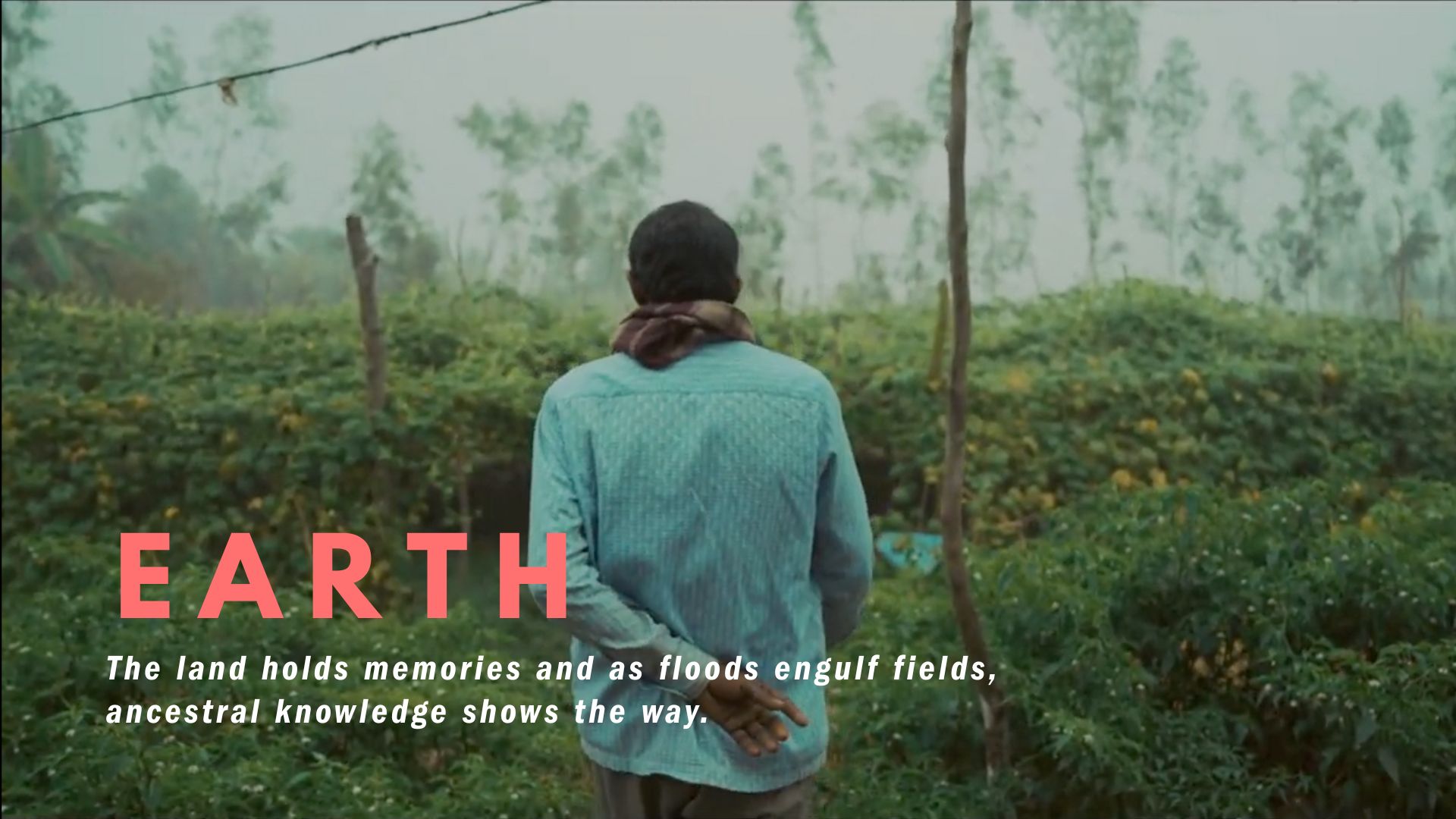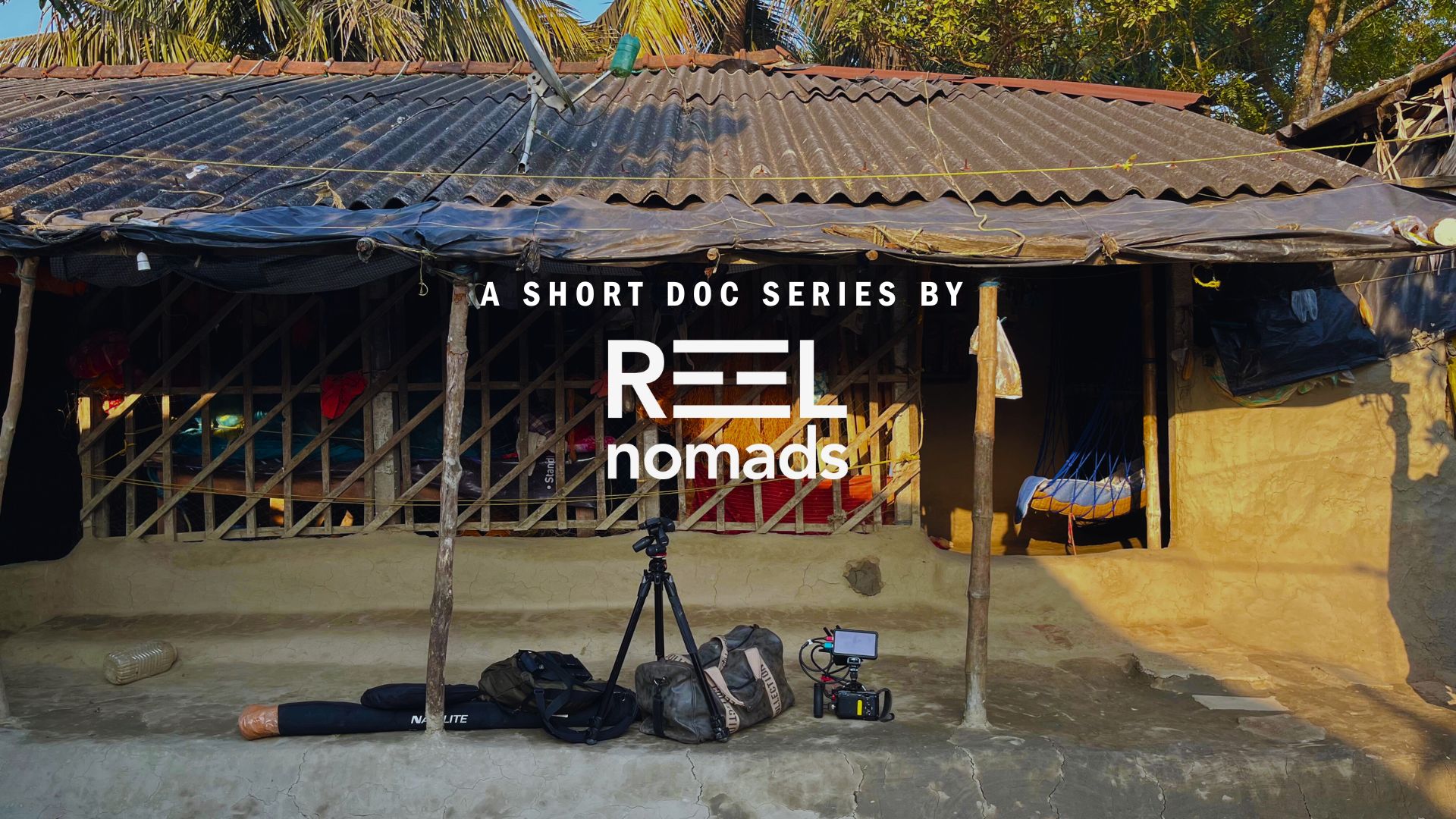
A 5-part short documentary series by Reel Nomads, now streaming on WaterBear Network follows communities living at the frontline of climate change. This is an intimate portrayal of their courage, wisdom and deep resilience, revealing how tradition and innovation come together in quiet, powerful ways.
Episode 1 - WIND
In the winds of change, women rise with the mangroves.Cyclones are tearing through the Sundarbans with growing intensity, but they haven't broken the spirit of these women. In Episode 1, a new bond forms between women and mangroves, offering a vision of strength, friendship and restoration.
Episode 2 - FIRE
When forests and people collide, can bees show us a way forward?As climate change intensifies human-wildlife conflict in Sundarban, forest-dependent livelihoods are becoming increasingly perilous. But change is taking root in hives close to home. Episode 2 of explores how native beekeeping is healing the fragile balance between livelihoods and ecosystems. The smallest of creatures, hold the biggest answers.
Episode 3 - WATER
The tides still rise and fall, but so do we.The tides govern the lives of the people of Sundarban, shaping daily life with its ebb and flow. In Episode 3, the youth of Sundarbans reimagine their relationship with water and their vision of the future. By blending awareness with action, begin to shape a more resilient delta community.
Episode 4 - EARTH
We call her mother and she remembers.In Sundarbans, the soil tells a story of floods, cyclones and survival. Episode 4 honors the farmers who hold onto ancestral knowledge, resisting the industrial push and embracing earth-friendly ways, sowing hope for themselves and their land.
Episode 5 - SPACE
When homes wash away, what remains?What do you do when frequent cyclones take away everything you call home? In the island villages of the Sundarbans, farming, fishing, and other traditional livelihoods have become increasingly unsustainable in the face of climate change. In the final episode migration, motherhood and memory come to the forefront. As men move away in search of work, women become anchors of strength, navigating climate loss with quiet courage.
Directed by: Ipshita Bhattacharyya
Cinematography: Nitin Kumar
Additional Camera: Nishikant Sahu
Photography: Shreyas Vanmali
Editor: Niladri Bhattacharji
In Show Packaging: Chinmoy Bhowmik, Haradhan Bhowmik
Supported by: Nature Environment & Wildlife Society
End to End Production
Nature Environment and Wildlife Society (NEWS), founded in 1991, is a conservation NGO based in Kolkata, India. Their primary focus is to conserve wildlife, ecology, natural resources and sustainable livelihoods for an improved environment. NEWS works for a better future where scientific research, knowledge dissemination, community engagement and policy advocacy, all put together to achieve sustainable development.
